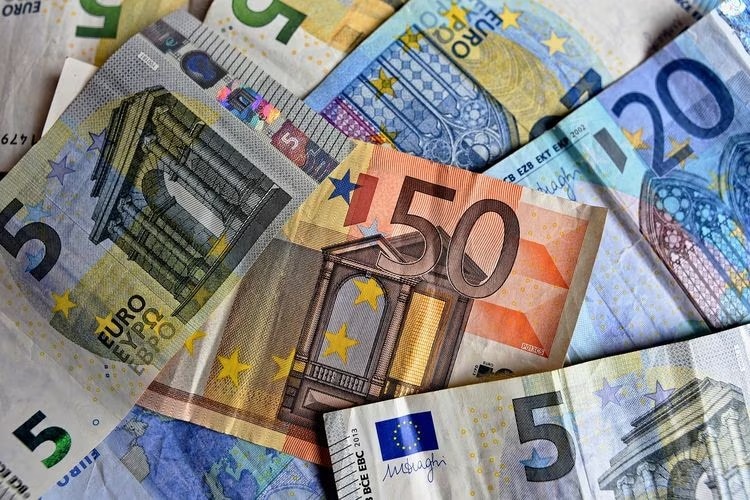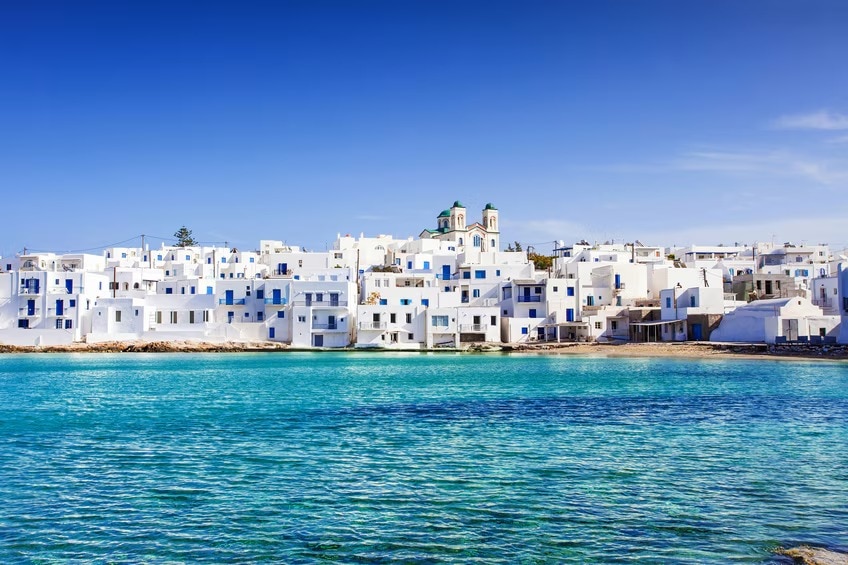-
2026/03/11
New York(EWR) -
2026/03/19
Athens
(Updated: September, 18, 2025 15:03)
Greece Travel Tips and Information
Official Name
----
Capital
Athens
Population
Country Code
Approximately 10 million
GR
Country Code (international calls)
+30
The flight time to Greece is approximately 9~13 hours. Check the climate, currency, religion, manners, other information of Greece below. Wishing you pleasant travels to Greece.
Greece is located in the southeast of Europe, at the tip of the Balkan Peninsula. It borders Albania, Macedonia, and Bulgaria, and is connected to Istanbul in Turkey in the northeast.
Compare Airfares for Flights to Greece
Compare Airfares for Flights to Greece
Compare Airfares for Flights to Greece
Local Climate / Weather
Greece offers a Mediterranean climate with hot, dry summers and mild, wet winters, making it an ideal year-round destination with each season offering unique travel experiences. Summer (June to August) is peak tourist season, with temperatures often reaching 30°C, ideal for beach lovers heading to islands like Mykonos and Santorini. For those seeking fewer crowds and pleasant weather, spring (March to May) and fall (September to November) are perfect times to visit, with cooler temperatures and blooming landscapes in spring and autumnal colors in fall. Winter, especially from December to February, offers a quieter side of Greece and is great for exploring Athens’ historical sites without the summer rush. When planning, consider seasonal travel advice: summers bring large crowds and higher prices, so booking accommodations early is essential, especially in popular areas. Spring and fall allow more flexibility with lower rates and comfortable temperatures for sightseeing and outdoor activities. Winter is the best time for budget-conscious travelers, as major attractions remain open, and Greece’s mainland experiences fewer tourists. Throughout the year, major events and festivals in Greece celebrate the country’s rich heritage and culture. Easter, celebrated with vibrant processions and feasts, is one of Greece’s most important holidays, with festivities in April across the islands. Athens Epidaurus Festival (June to October) brings theater performances to ancient venues, while Carnival (Apokries) in February showcases colorful parades and traditional costumes across the country. For music and culture enthusiasts, summer’s Rockwave Festival near Athens and local panigiria (village festivals) offer lively celebrations, food, and music, giving travelers a glimpse into authentic Greek culture.
Currency & Tipping
Currency
Greece uses the Euro (€), with ATMs widely available in cities and tourist areas. Credit and debit cards are also widely accepted in hotels, restaurants, and shops, but it’s helpful to carry some cash, especially for small towns, markets, and smaller establishments where card payments may not be available.
Tipping
As for tipping in Greece, it’s customary but not obligatory, with amounts varying by service type. In restaurants, leaving a tip of 5-10% of the bill is appreciated if service isn’t already included; in some cases, a "service charge" may be added to the bill, and an additional tip is at your discretion. For taxis, rounding up to the nearest euro or adding a small tip is polite. Hotel staff, such as porters and housekeeping, may receive around €1-2 per service. While tipping is welcomed, it’s not as strictly expected as in some other countries, so giving tips in Greece is a nice gesture but not mandatory.
Useful Travel Information

Voltage & Electrical Outlets
When visiting Greece, knowing useful travel information about electricity, internet, and water quality can enhance your experience. Greece operates on 230V with Type C and F outlets (two round pins), so travelers from the other regions may need a power adapter to charge devices.

Internet Connectivity
The internet environment in Greece is generally good, with Wi-Fi widely available in hotels, cafes, and restaurants in urban areas and tourist spots. However, rural areas may have limited access or slower speeds, so consider purchasing a local SIM card or portable Wi-Fi if you need constant connectivity during your travels.
Water for Consumption (Drinking Water)
Regarding drinking water, tap water can be safe to drink in major cities like Athens and Thessaloniki, but on some islands and rural areas, bottled water is recommended due to variations in water quality. Staying informed about these practical travel tips will help you enjoy a hassle-free visit to Greece.
Culture, Religion & Social Etiquette
Culture
Greek culture and traditions are rich with history, influenced by ancient civilizations and the Orthodox Christian faith, which is the predominant religion in Greece. In Greece, "Name Day" (Yorti), which celebrates one's patron saint, is considered more important than birthdays. At the end of the year, there is a tradition where children sing a song called Kalanda. Another unique custom is hanging onions as decorations to welcome the New Year. Additionally, there is a superstition that giving eggs to someone at night brings bad luck.
Religion
Greek Orthodoxy is the predominant religion, followed by the vast majority of the population.
Social Etiquette
In Greece, peace signs and showing palms are signs of humiliation, so be very careful. Photography is prohibited in some areas. Dress formally for the cruise. During the siesta (nap) time (around 2-5 p.m.), it is customary to stay at home quietly, so stores are often closed. Therefore, spend your time quietly during the siesta.
Food Culture
Greek cuisine is a flavorful and healthy blend of fresh ingredients, aromatic herbs, and Mediterranean staples, offering travelers a unique culinary adventure. Traditional dishes like moussaka (layered eggplant and meat casserole), souvlaki (grilled meat skewers), and spanakopita (spinach pie) showcase the variety in Greek food culture. For a quick and delicious bite, Greek street food is a must-try, with gyros (pita-wrapped meats with tzatziki sauce) being a popular option found in many local stalls. Travelors can explore authentic Greek flavors at local favorites such as Ta Karamanlidika tou Fani in Athens, renowned for its cured meats and cheeses, or O Thanasis, famous for its affordable and delicious souvlaki. With its emphasis on fresh, flavorful, and healthy ingredients, Greek food culture offers a delightful culinary journey.
Major Tourist Attractions & UNESCO World Heritage Sites
Major Tourist Attractions
Tourist attractions in Greece include the Acropolis in Athens, Oia, Meteora, Fira, the National Archaeological Museum, the windmills of Mykonos Island, the Temple of Zeus, and Aegean Sea cruises. You will enjoy the city with its distinctive architecture and scenic views. It is also famous for its cruises. Be sure to dress appropriately when taking a cruise. Skopelos Island was used as a filming location for the movie “Mamma Mia. The sea is very beautiful, and all the islands are attractive and enjoyable.
UNESCO World Heritage Sites
There are 19 heritage sites in Greece. Vasse, the Acropolis of Athens, the Ancient Monuments of Delphi, Mount Athos, Meteora, the Early Christian and Byzantine Monuments of Thessaloniki, the Ancient Monuments of Epidaurus, the Medieval City of Rhodes, Mystras, the Ancient Monuments of Olympia, the Ancient Monuments of Delos, the Daphni Monastery in Athens, Monastery of Ossios Loukas, Monastery of Nea Moni in Hyos, Pisagorion and Temple of Hera in Samos, Ancient Monuments of Vergina, Mycenae and Tiryns, Monastery of St. John the Theologian and Historic Centre of Patmos with the Cave of the Apocalypse, and Old Town of Kerchira (Corfu) Island.
Travel FAQs
What is the safety situation in Greece like? What should I be careful of?
Greece is generally considered a safe destination for travelers, with low crime rates and a welcoming environment for tourists. However, like in any popular tourist destination, it's wise to stay cautious in crowded areas, particularly in major cities like Athens and Thessaloniki, where pickpocketing can occur. Keeping valuables secure and avoiding displaying expensive items in public can help prevent petty theft.
What is the most popular airport to fly into Greece?
Athens International Airport, located on the outskirts of the capital, Athens, is popular.
What is the best season to visit Greece?
The best season to visit Greece is from April to June or from September to October, when the weather is most comfortable.
Is English spoken in Greece?
The official language of Greece is Greek, but English may be spoken in tourist areas. In some cases, Italian and other languages may also be spoken, so it is safe to have multiple languages available.




